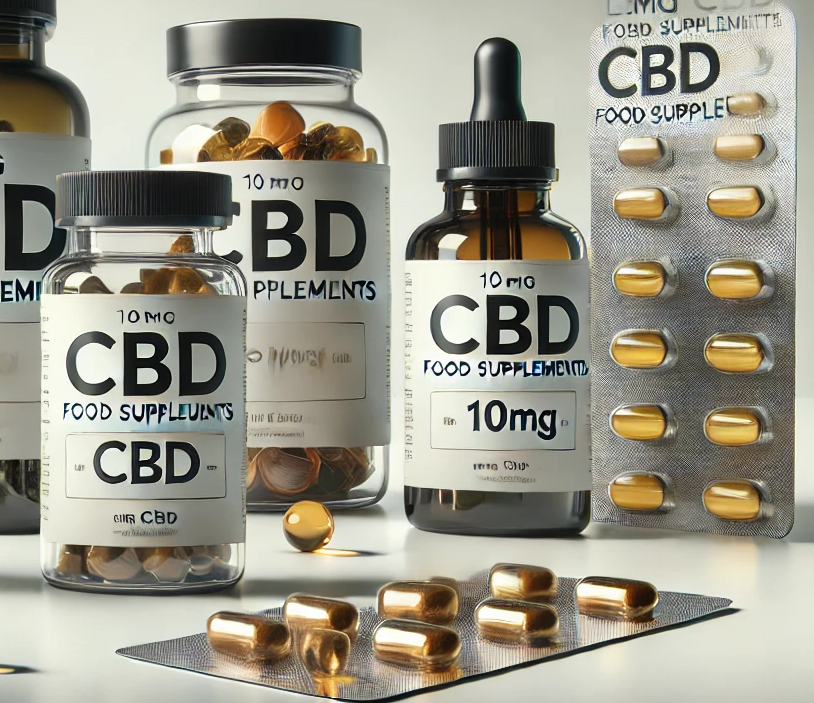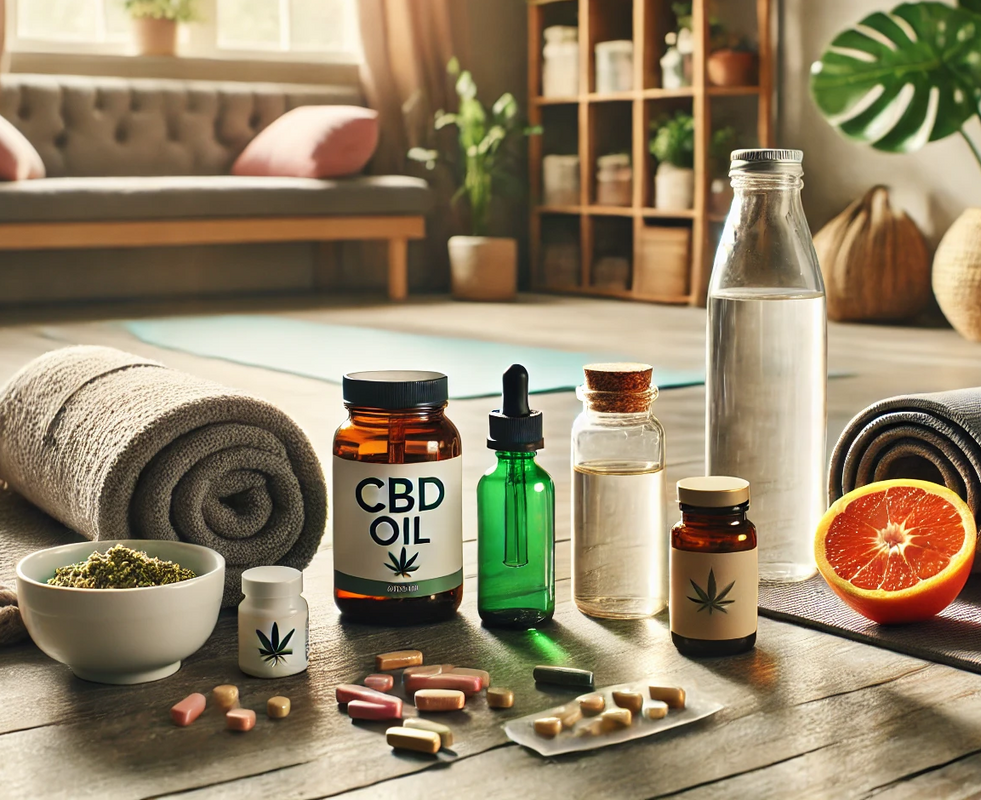
As we all know, cannabidiol (CBD) is a hot topic in the wellness world, and for good reason. This non-psychotropic compound from the cannabis plant has been incorporated into a wide variety of products, from oils and capsules to gummies and drinks. As CBD continues to gain popularity, it’s crucial for the industry to stay informed about the evolving regulatory landscape. One key development is the Food Standards Agency’s (FSA) safety assessment of isolated CBD as a novel food, known as RP427. You can find the full assessment here: https://science.food.gov.uk/article/121803-safety-assessment-on-isolated-cannabidiol-cbd-as-a-novel-food-for-use-in-food-supplements-rp427.
In this article, I’ll unpack what the FSA’s RP427 safety report means for our industry, how it impacts CBD’s use in food supplements, and why it’s important to strike a balance between consumer safety and supporting industry growth.
What is the RP427 Assessment?
The FSA’s RP427 assessment looks specifically at isolated hemp derived CBD intended for use in food supplements. As many of you will know, CBD products currently sit within the category of “novel foods” under UK and EU law. This means that before CBD products can be sold legally as food supplements, they need to pass a safety evaluation to ensure they pose no risk to consumers.
The focus here is on isolated CBD, meaning it’s been separated from other cannabinoids and compounds naturally found in the cannabis plant. This differs from full-spectrum CBD, which contains a range of cannabinoids and terpenes.
The RP427 assessment hones in on whether isolated CBD is safe for people to consume over time, especially in food supplements that are designed to be taken regularly.

What Are the Key Takeaways?
Safety Concerns at Higher Doses
One of the main points the FSA raises is the potential risk of consuming CBD in high doses or over long periods. The report flags concerns about how CBD affects liver function, its potential to interact with medications, and its impact on reproductive health. While these concerns are backed by studies, it’s important to point out that much of the available data is from research involving significantly higher doses of CBD than what you’d find in your typical food supplement.
It’s also worth noting that most long-term safety data on CBD comes from studies focused on medical use, such as treating paediatric epilepsy, where doses are far beyond what people usually take for wellness purposes.
The 10 mg Daily Limit
The FSA has recommended a daily intake limit of 10 mg of CBD, which is pretty conservative. They’re taking a cautious approach, recommending this as a safe limit while we await more research on the long-term effects of CBD in food supplements. The FSA has made it clear that this is not set in stone and may change as more human studies become available. However, it’s not surprising that some in the industry feel this 10mg limit is unnecessarily strict, given the lack of evidence showing harm at the lower doses found in food supplements.
Liver Toxicity
One of the more serious concerns flagged in the report is the potential for liver toxicity. This is based on studies that show liver enzyme changes at high doses of CBD. However, it’s important to keep in mind that these studies involved much higher doses than what we’re talking about in relation to food supplements. We need more research on whether these findings apply to the lower doses of CBD typically used in wellness products.
Interactions with Medications
The report also touches on CBD’s potential to interact with certain medications, which is a legitimate concern. CBD can affect how the body processes some prescription drugs, potentially leading to unintended side effects. For consumers who are taking other medications, this is something to be aware of, and it’s a good reason for companies to provide clear guidance on their product labels.

What Does This Mean for the Industry?
The RP427 safety assessment has some important implications for those of us working in the CBD industry. First and foremost, it signals that the regulatory environment around CBD is becoming more stringent. While this isn’t necessarily a bad thing, it does mean that we need to stay on top of safety guidelines and ensure we’re providing accurate information to consumers.
For manufacturers and producers, the FSA’s findings mean there’s an increased need for transparency around dosage and potential risks. It’s also a reminder that ongoing research and toxicological testing are critical to ensure that our products meet the necessary safety standards.
Is the Approach Too Cautious?
Let’s talk about the elephant in the room – the 10mg daily limit. Many in the industry believe that this limit is overly cautious, particularly when you consider the higher limits set by regulators in other countries. For example, the European Industrial Hemp Association (EIHA) has called for higher thresholds based on their own research.
In Switzerland, regulators have taken a more relaxed stance, allowing for higher CBD levels in food products without setting an Advisory Daily Intake (ADI) limit like the FSA has.
While it’s important to prioritise consumer safety, we also need to ensure that the regulatory framework supports industry growth. With more data from human studies, we can hope to see the FSA reconsider its conservative approach, allowing the UK CBD market to flourish without unnecessary restrictions.

Finding the Right Balance
The FSA’s RP427 assessment reflects a cautious and safety-first approach to CBD regulation. This is understandable given the relatively limited data available, especially on long-term use in humans. But for those of us working in the industry, it’s crucial that we advocate for regulations that are not only based on safety but also on sound science and a recognition of CBD’s growing role in the wellness sector.
As more research is conducted and more data becomes available, I’m hopeful that we’ll see a more balanced regulatory framework that protects consumers while allowing the industry to grow. In the meantime, we’ll continue to keep a close eye on developments and do everything we can to ensure that CBD products are safe, well-regulated, and accessible.
For the full FSA safety assessment on isolated cannabidiol, please visit:
Marika Graham-Woods
Managing Director
Published - 02/10/2024





